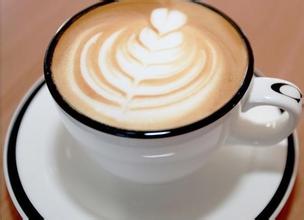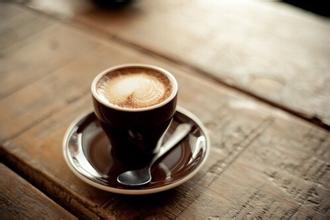Jamaica Blue Mountain Coffee Flavor description Taste characteristics introduction of boutique coffee bean producing areas
By the time the Europeans arrived in Australia, the Blue Mountains had been occupied for thousands of years by local aborigines, the Gundungurra, who are now represented by the Aboriginal companies of the Gundonggula tribal council in Katumba. According to indigenous legend, the Blue Mountain originated from the legendary battle between the dream creatures Mirigan and Garangatch, who are rumored to be half-aquatic and half-crawling creatures, and the Jamison Valley was torn apart by their battles. Yutongdonggula tribal council is a non-profit organization. Since 1995, they have been trying to claim the territory of their ancestors, and they have even made a virtual video on the website. Today, the traces of indigenous ancestors can still be seen in many places in the Blue Mountains. Mount Victoria, the highest peak of the Blue Mountains, is 1111 meters high. Because of its remote and desolate, it is still an unconquered primeval forest. Overlooking from the watchtower on the edge of Blue Mountain National Park, you can see the blue mountains, which have been disappearing into the sky. Close look, full of cliffs, towering; waterfalls turbulent, purging down, melting into the lush forest sea, or falling into the towering ravines
Blue Mountain Coffee is the most superior coffee in the world, and the weather, geological structure and topography of Jamaica provide an ideal place. The ridge that runs through Jamaica extends to the eastern part of the island, with the Blue Mountains rising to more than 2100 meters. Cool weather, foggy, frequent precipitation, use this rich soil Rain Water to reconcile. Here, a mixed planting method is used to grow coffee trees to accompany banana trees and avocado trees on terraces. Some small estates are also planted. But even the largest landowners in the region are small-scale growers by international standards, many of whom are small landowners whose families have been working for two centuries. The coffee industry in Jamaica faces a series of problems, such as the impact of hurricanes, increased labor costs and difficult mechanization of terraces. It is difficult for many small estates and farms to grow Blue Mountain Coffee rationally.
(Jamaica Blue Mountain Coffee), of which Blue Mountain Coffee and Alpine Coffee are each divided into four grades. From top to bottom in terms of quality, NO.1, NO.2, NO.3 and PB,PB are round beans. According to CIB standards, only coffee grown above 666m above sea level is called Jamaican Blue Mountain Coffee.
Alpine coffee
(Jamaica High Mountain Supreme Coffee Beans) the coffee produced in the Blue Mountain area of Jamaica is called Alpine Coffee, which is second only to Blue Mountain Coffee in quality, and is called the brother breed of Blue Mountain Coffee by industry insiders. Jamaica Blue Mountain caffeine produces very little, so if you want to taste Jamaican flavor coffee, then Jamaican Alpine Coffee is your best choice.
Jamaican Coffee
(Jamaica Prime Coffee Beans). Coffee is grown outside the Blue Mountains and is called Jamaican coffee. It turns out that people in the coffee industry in China generally have a wrong understanding that only coffee grown in the Blue Mountains above 1800 meters above sea level can be called Blue Mountain Coffee. In fact, there is only one manor on the top of the Blue Mountains above 1800, that is, Amber, which is of Chinese descent. The owner of the manor is surnamed Lyn (Lin). Originally from Guangdong, China, the manor has a land area of only 30 hectares and its output is very small. Blue Mountain Coffee is mainly distributed in John Crow,St.John's Peak,Mossman's Peak,High Peak,Blue Mountian Peak and other five mountainous areas in the Blue Mountains.

Important Notice :
前街咖啡 FrontStreet Coffee has moved to new addredd:
FrontStreet Coffee Address: 315,Donghua East Road,GuangZhou
Tel:020 38364473
- Prev

Flavor description of Indonesian Mantenin Coffee with strong Flavor introduction of Fine Coffee beans in producing areas
Indonesia is also the producer of the world's most expensive coffee, known as Kopi Luwak. The historical origin of Kopi Luwak is as interesting as its taste. The authentic Kopi Luwak collects the droppings of wild raccoons (common raccoons, coconut raccoons), which are nocturnal in coffee plantations, foraging for well-ripe coffee beans. But it can't digest rocks, cafes and cherries, so these cherries
- Next

Flavor description of Tanzanian Coffee with Pure Flavor introduction to High-quality Coffee with Taste characteristics in producing areas
The Constitution of the United Republic was enacted in April 1977 and has since been amended 14 times. The United Republic has a coalition government and a local government in Zanzibar. In 1992, the 8th Amendment to the Constitution clearly stated that Tanzania is a multi-party democracy and pursues the policy of socialism and self-reliance. According to the 11th Amendment to the Constitution in 1994, the Government of the United Republic shall have a President and a Vice President, and the President shall be the State.
Related
- Detailed explanation of Jadeite planting Land in Panamanian Jadeite Manor introduction to the grading system of Jadeite competitive bidding, Red bid, Green bid and Rose Summer
- Story of Coffee planting in Brenka region of Costa Rica Stonehenge Manor anaerobic heavy honey treatment of flavor mouth
- What's on the barrel of Blue Mountain Coffee beans?
- Can American coffee also pull flowers? How to use hot American style to pull out a good-looking pattern?
- Can you make a cold extract with coffee beans? What is the right proportion for cold-extracted coffee formula?
- Indonesian PWN Gold Mandrine Coffee Origin Features Flavor How to Chong? Mandolin coffee is American.
- A brief introduction to the flavor characteristics of Brazilian yellow bourbon coffee beans
- What is the effect of different water quality on the flavor of cold-extracted coffee? What kind of water is best for brewing coffee?
- Why do you think of Rose Summer whenever you mention Panamanian coffee?
- Introduction to the characteristics of authentic blue mountain coffee bean producing areas? What is the CIB Coffee Authority in Jamaica?

